Jesuit Centre for Theological Reflection (JCTR) Executive Director Fr. Emmanuel Mumba
Notice: Undefined index: catFilterList in /home/zambi/public_html/wp-content/plugins/wp-likes/api.php on line 243
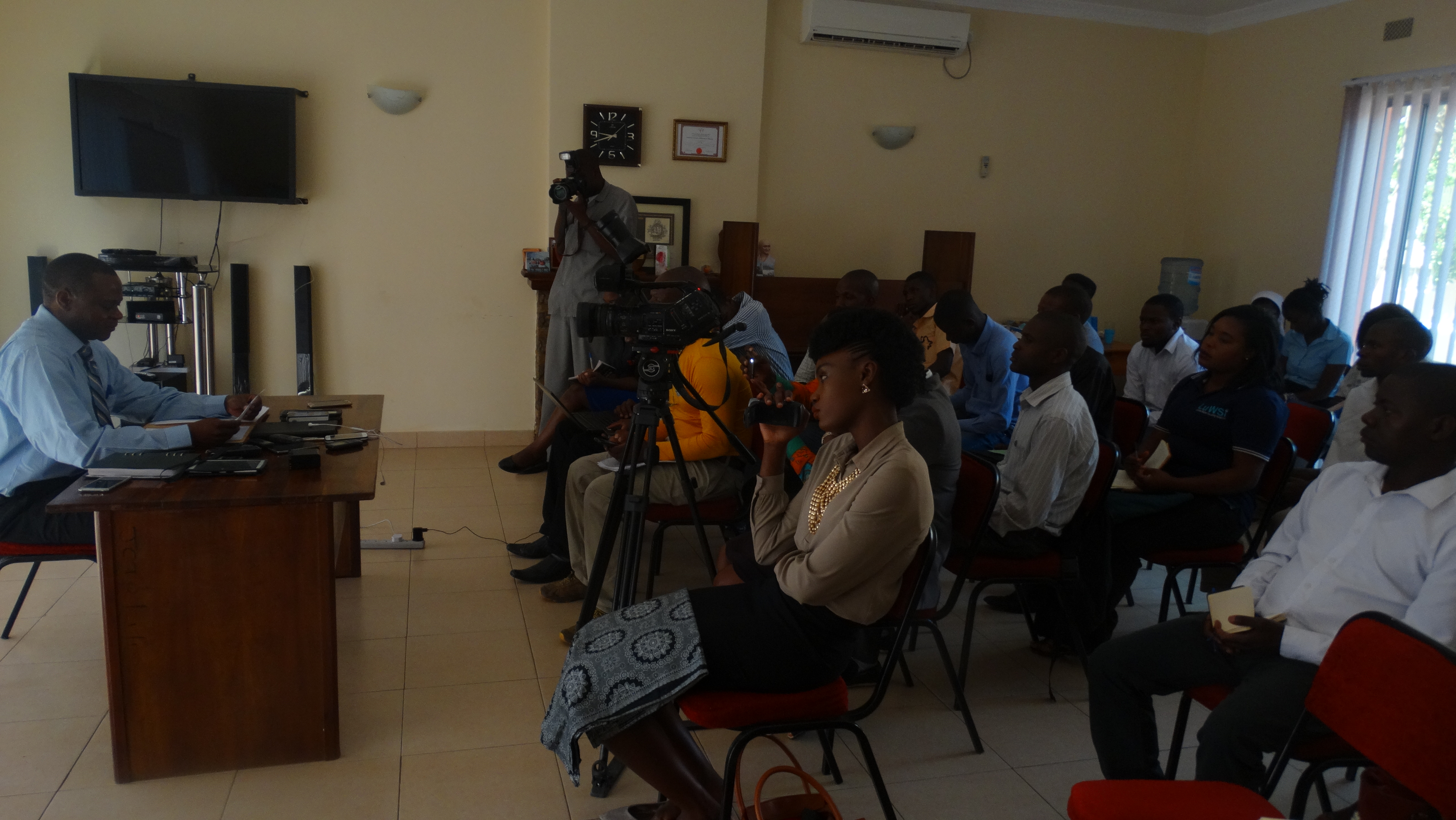
JCTR Executive Director Father Emmanuel Mumba at a Media Briefing in Lusaka Wednesday 2017 pix by Tendai Posiana
Wednesday 11th October, 2017.
ON BEHALF of the Jesuit Centre for Theological Reflections (JCTR), I am delighted to welcome you all to this Media Interaction which also happens to be my first with you our cherished friends from the media fraternity.
As an Institution tasked to be a voice for the masses, especially the poor and voiceless, the JCTR considers the Media as a special partner that assists to educate and pass on important information to the nation on topics of national development.
Before my predecessor Fr. Leonard Chiti, Fr. Peter Henriot laid a very solid foundation for the JCTR and I am here to carry on with the work of the Centre which is primarily to promote Faith which propagates Justice. The JCTR is known as a research, education and advocacy team that promotes study and action on issues linking Christian faith and Social Justice in Zambia and Malawi.
Our Mission therefore is to foster from a faith-inspired perspective a critical understanding of current issues- social, economic, political, and cultural and religious- affecting our people in Zambia. Guided by the Church’s social teaching that emphasizes the human dignity in community, our mission is to generate activities for the promotion of the fullness of human life through research, education, advocacy and consultations. We aim to promote an all-embracing faith, gender equality and empowerment of local communities in the work of justice and peace and integrity of creation.
As new Director of the JCTR, I hope to continue with the same spirit and purpose which has directed the Centre over the years. I am confident that with your support, we shall be able to deliver to the expectations of Zambians, who depend on you and us (JCTR) to serve them.

UNITED Party for National Development (UPND) Presidebnt Hakainde Hichilema with Activist Dante Saunders 2017 picture by Derrick Sinjela
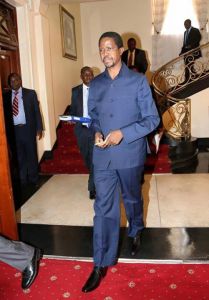
President Edgar Chagwa Lungu going for Cabinet Meeting 16th March 2015
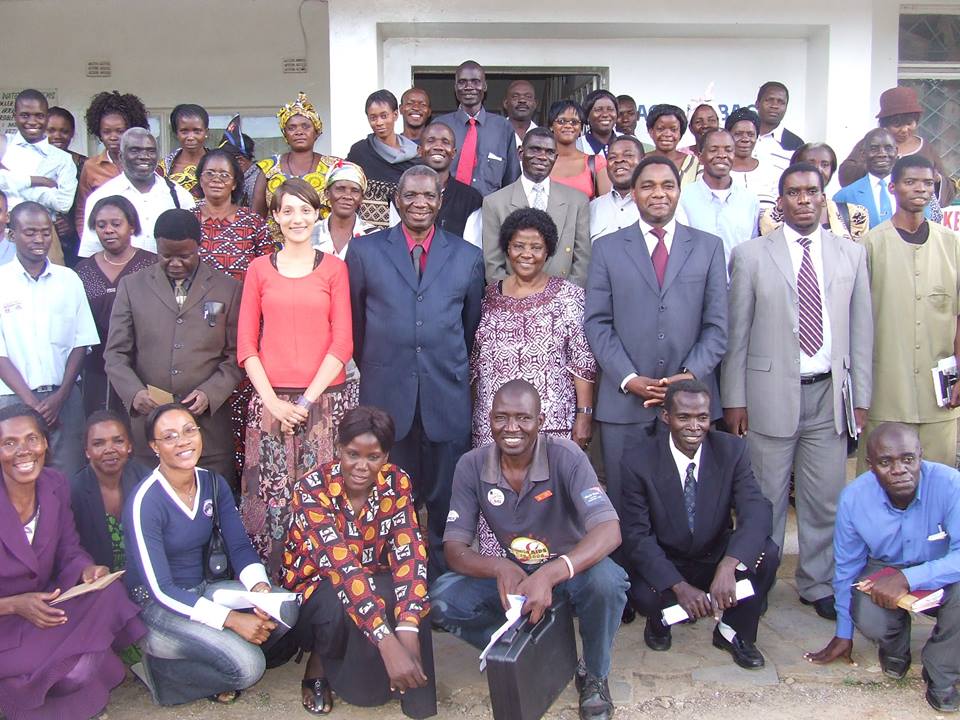
Hakainde Hichilema with Gen Malimba masheke and Highvie Hamududu
The JCTR will therefore continue to be a voice for the voiceless by maintaining the path of offering checks and balances to the current Government as well as to those in Opposition. We shall continue to bring to the fold and confront issues affecting the well-being of our people. We shall continue to critically research on and analyze with a view of empowering and protecting our people Issues bordering on governance, management and distribution of public resources, transparency and accountability, human rights, gender equality and the integrity of creation.
The Media is globally understood as a Fourth Estate after the Executive, Judiciary and Legislature in the governance structure. As stated time and again, the media or communicators act as a bridge between the governed and the governors. It is against this understanding that I implore the Jesuit Centre for Theological Reflection (JCTR) to increase interaction with electronic and print media platforms.

Father Peter Henriot in Zambia
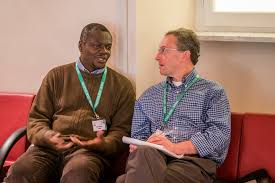
Fr Leonard Chiti SJ, named next Provincial of the Zambia-Malawi Province
It is encouraging to note that my predecessor Fr. Leonard Chiti continued to build on a tradition initiated by his predecessor, Fr. Peter Henriot, through a mutual and bonded relationship with a diversity of electronic print media outlets. It is worth noting that investment in activities that uplift good governance and access to a better life largely depend on the manner with which such goals and ideals are communicated to citizens from all walks of life.
As every person is created in the image and likeness of God, the JCTR has an obligation of transforming itself as a human-faced ecumenical body, in line with the ideal of bettering the status of life among Zambian Communities.
Therefore, nurturing our rapport with media houses will result in the goal of increased human rights promotion and ameliorating our mitigation of the plight of our people, especially the poor and less privileged. Given the fact that Zambia is endowed with natural resources, it is imperative for the JCTR to engage electronic and print media houses as we all strive to promote the Common good, social justice and the equal distribution and access to resources such as access to water, sanitation, health and Education.
On the political front, it is JCTR’s hope that democracy and the rule of law will continue to prevail. It is our prayer that the dialogue process under the auspices of the Commonwealth will yield positive results. We hope that the Access to Information Bill will be finalized and the cloud hanging over the Public Order act will soon clear.
We know that in a democracy, there are always divergent views but we appeal to politicians to be mindful that this country needs to move forward by focusing on that which brings us together rather than on what divides, discriminate and marginalize others. It is our role to help find a Common ground. Our expectations are high over the revision of the Public Order Act; we welcome the call for submissions to revise the act that has been a source of conflict among stakeholders.
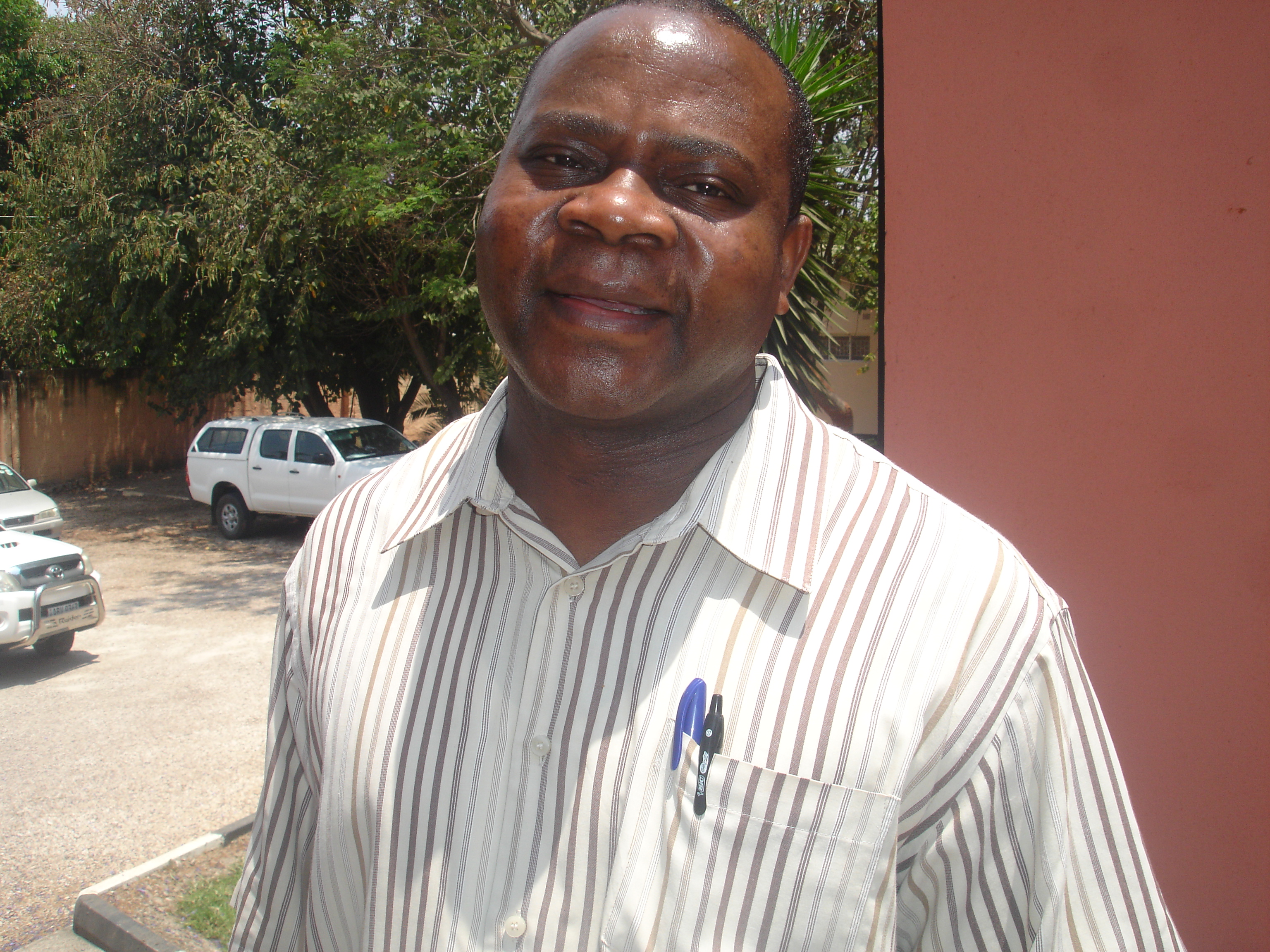
JCTR Executive Director Father Emmanuel Mumba Wednesday 4 October 2017 pix by Derrick Sinjela
On the economic front, On Friday, 29th September, 2017, the Minister of Finance presented the proposed budget for the fiscal year 2018 under the theme: “Accelerating fiscal fitness for sustained inclusive growth without leaving anyone behind”. The budget was presented at the time when according to the 2015 Living Conditions Monitoring Survey (LCMS), Zambia’s national poverty levels stood at 54.4% and rural poverty at 76.6%. The poverty connotation is associated with citizens having challenges to access essentials required for a dignified standard of living such as health, education and a decent standard of living. The cost of living has consistently been increasing in the last one year making it difficult for many households to access basic needs. The budget was also released at the time the economy is trying to fully recover from economic turbulence of 2015 and 2016.
Overall, the high intentions of reducing poverty, inequality and creating jobs so that no one is left behind seems to fall short of the revenue measures proposed. While JCTR acknowledges measures such as removal of tax holiday of five years offered to foreign firms, the total financing measures proposed are inadequate to deliver the good intentions of the 2018 budget. The budget is almost silent on effectively taxing mining companies. The informal sector is another sector that has been almost let scot free. The challenges facing collection of informal sector taxes go beyond the upward adjustment of informal sector tax such as base tax which the minister announced but administration of the tax. The budget should have also provided more incentives for local industrialization. Other than creation of industrial economic zones and parks, the budget has not offered much on how it will industrialize the economy and create jobs. The budget also has no relief to workers as they continue to bear the burden of generating tax revenues through pay as you earn.
JCTR asserts that the K71.6 billion National should not leave anyone behind. There is need for controlled borrowing to avoid plunging the country again into debt. There is need for more transparency and accountability in the use of public resources.
Having said this, the JCTR believes that it is important to support the government of the day through the provision of well researched checks and balances. In this light, I would like to commend the government for establishing a research fund as highlighted in the Presidential speech delivered on 15th September, 2017. This is a welcome development that needs mobilization of funds for swift implementation.
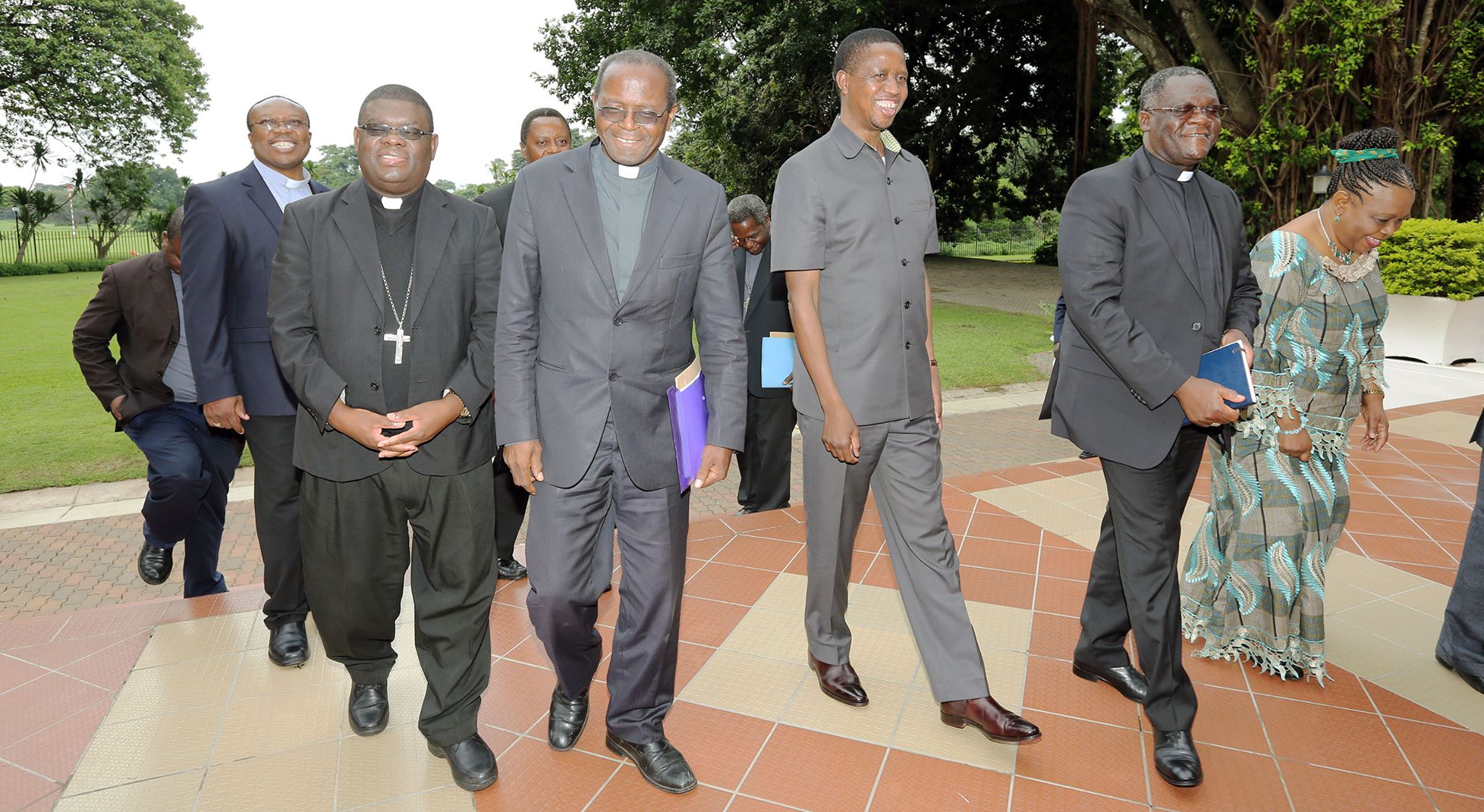
President Lungu with Catholic Bishops
In collaboration with the Zambia Conference of Catholic Bishops, other mother Church bodies and with our cooperating Partners, the JCTR will endeavor to continue to promote the Common good by way of campaigning for just economic governance, promoting Church’s social teaching and building awareness.
We are grateful that our Basic needs Basket (BNB) has continued to attract government’s attention as a reference point for the cost of living in Zambia. That remains one of the JCTR’s pivotal contributions towards national development. Also the skills development fund must be properly used to ensure that youths acquire skills in order for them to be employable thereby supporting economic growth in all sectors.
I am exceedingly grateful to you for coming and for listening attentively. May the good Lord continue to bless you and your work, and to bless Zambia Our Great Country! I will take questions if any….
Jesuit Centre for Theological Reflection (JCTR) Executive Director Fr. Emmanuel Mumba
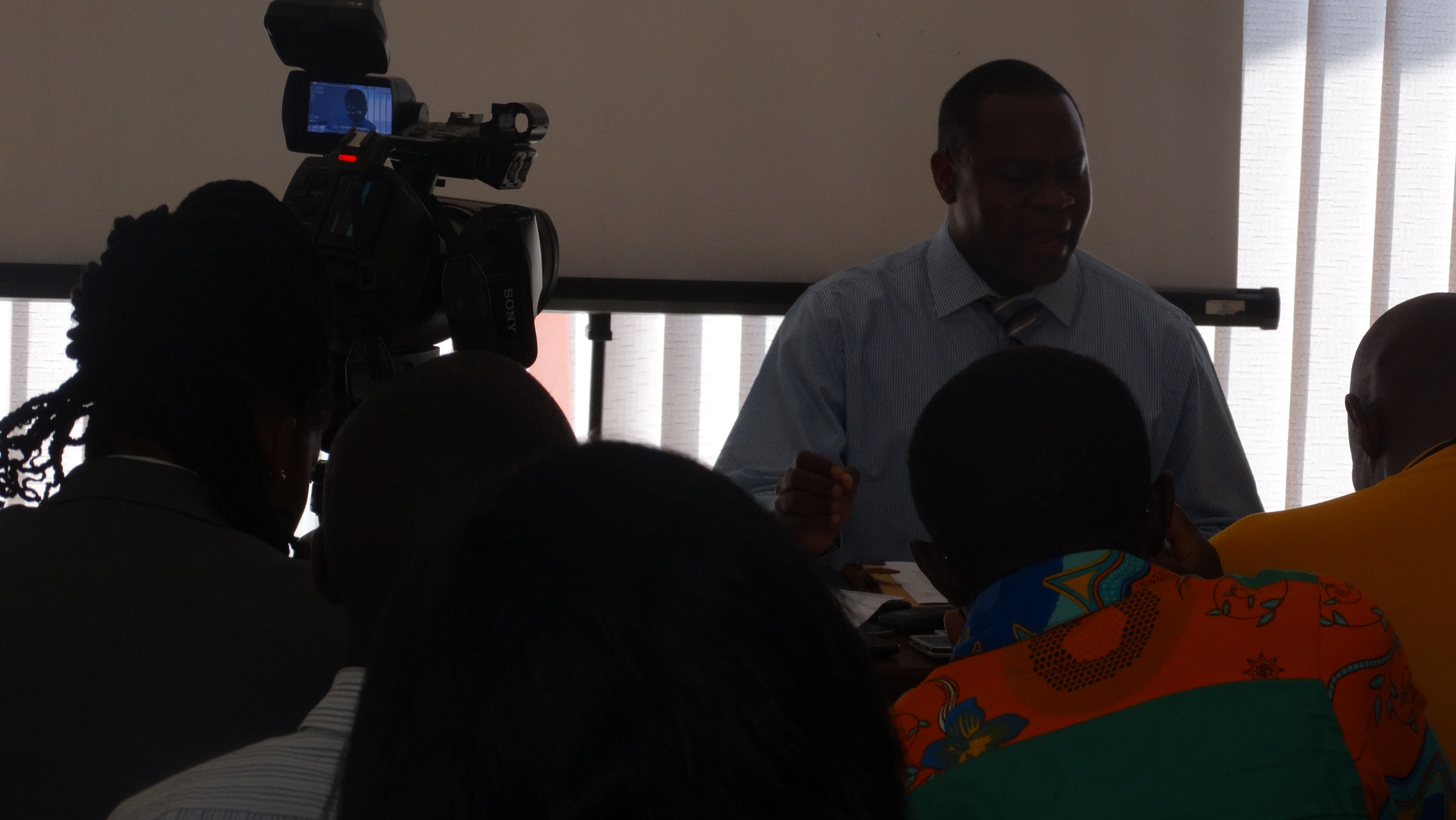
JCTR Executive Director Father Emmanuel Mumba at a Media Briefing in Lusaka Wednesday 2017 pix by Tendai Posiana (16)























